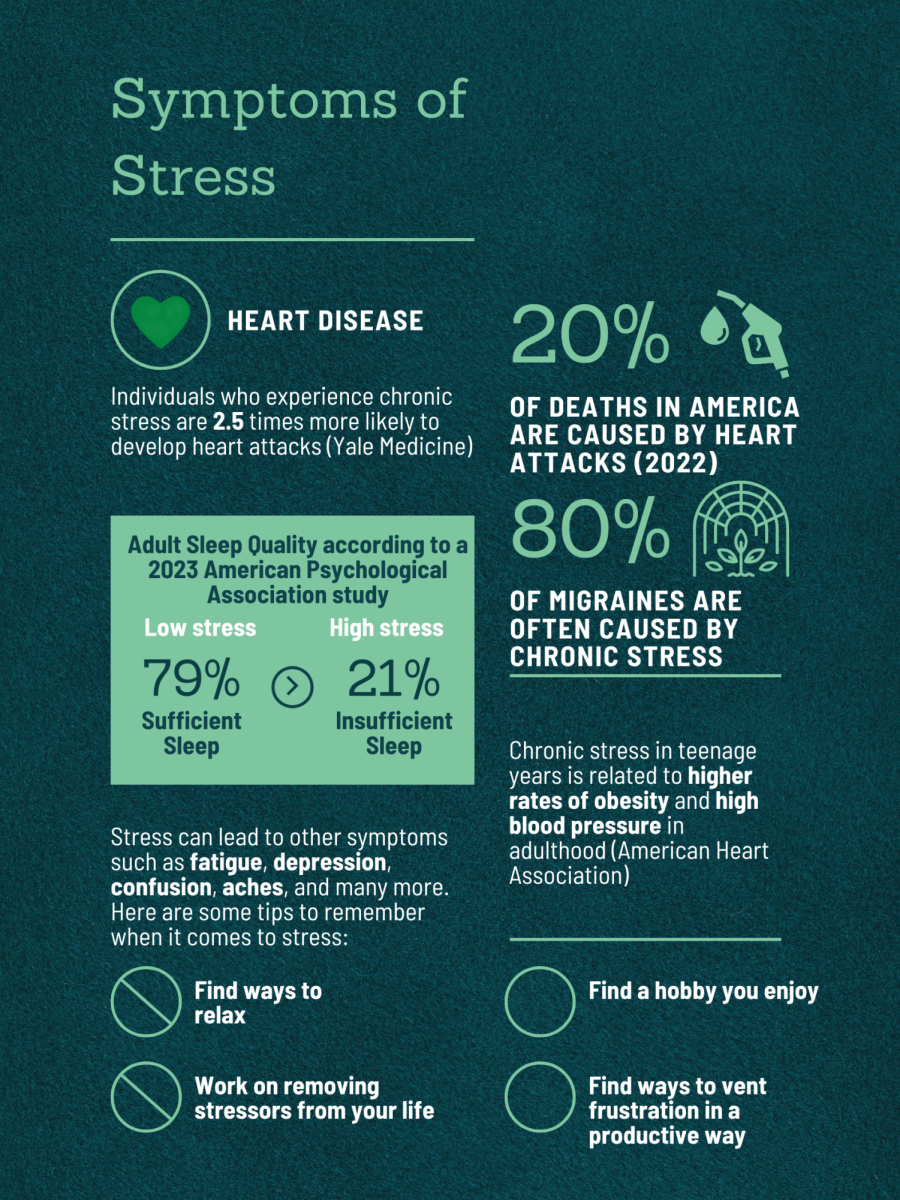Everyone experiences stress. School, family, friends, society, our future and our world stress us out. As an inherent part of the human experience, stress serves as a natural response to challenges and threats. While acute stress can be beneficial in certain situations, such as survival or responding quickly to an immediate problem, chronic stress poses significant risks to both your physical and mental health. Understanding these biological effects of stress and exploring effective management strategies is crucial for maintaining your overall well-being.
Short-term effects:
In response to stress, the body activates the “fight-or-flight” mechanism, releasing hormones such as adrenaline and cortisol. This leads to immediate physiological changes, including increased heart rate, elevated blood pressure and heightened alertness. These reactions prepare your body to respond to perceived threats effectively.
Long-term effects:
While short term-stress can be beneficial when it comes to exercise, quick problem-thinking, and the fight-or-flight response, chronic stress takes a heavy toll on the body and causes a variety of problems. “When we experience chronic stress, our cells are constantly responding to those stress hormones,” AP Biology teacher Mrs. Bell said. “Our cells are not supposed to constantly be hyperactive, which means they’re activating genes and processes shouldn’t be active all the time, at the cost of shutting other functions down.”
When stress becomes chronic, the continuous activation of the stress response can have detrimental effects on various bodily systems:
Cardiovascular System: Persistent stress contributes to hypertension and increases your risk of heart disease and stroke.
Immune System: Chronic stress suppresses immune function, making your body more susceptible to infections and slowing down recovery processes.
Digestive System: Stress can lead to gastrointestinal issues such as ulcers, irritable bowel syndrome and indigestion. These symptoms of stress can lead to a decreased quality of life.
Mental Health: Long-term stress is linked to mental health disorders, including anxiety and depression. While medication can treat these symptoms in the short term, it is extremely important to seek therapy or undergo a lifestyle change to prevent or reduce your stressors.
Statistics and Medical Insights on Chronic Stress:
The impact of chronic stress is profound:
Approximately 61% of adults experiencing stress report feelings of anxiety, and 51% report depression (Mental Health Foundation).
Chronic stress is associated with a reduction in life expectancy, with heavily stressed 30-year-old men potentially losing 2.8 years and women 2.3 years (World Economic Forum).
Mindfulness Techniques:
Practices such as meditation, deep breathing, and guided imagery allow you to focus on being present in the moment, helping to reduce stress and enhance emotional well-being.
“We know that physical activity has been scientifically shown to reduce the stress response and stress hormones,” Mrs. Bell said.
Mindfulness-based interventions have been shown to alleviate symptoms of anxiety and depression.
Lifestyle Changes:
Incorporating regular physical activity, maintaining a balanced diet, ensuring adequate sleep and fostering social connections are vital in mitigating stress. These habits enhance the body’s resilience to stressors and promote overall health.
“It can be difficult for some people to try to practice mindfulness,” Mrs. Bell said. “Ultimately, the most important thing to do is to make yourself feel more relaxed and try your best to remove things that make you feel stressed in your life. Try to recognize and avoid your stressors.”
Understanding the profound effects of stress and implementing effective management strategies are essential for maintaining your health and well-being. All of us need to do our best to reduce as many stressors as we can for the good of our bodies and minds.






